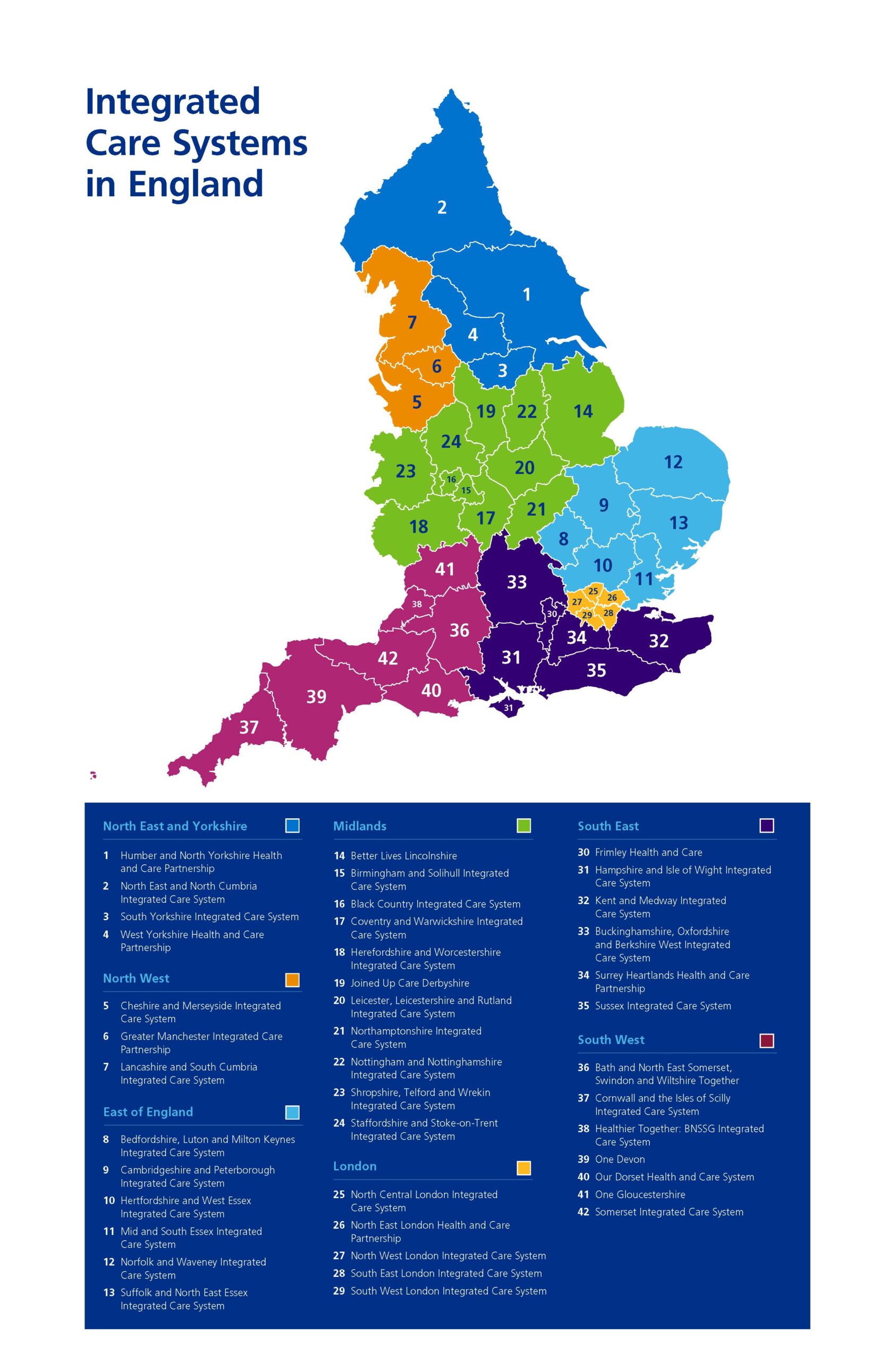What is an ICB (integrated care board)?
An Integrated Care Board (ICB) is part of a (sub-regional) statutory administrative NHS organisation called an ICS (Integrated Care System). ICS/ICBs plan and deliver health services for their population. There are 42 in England, and each report to one of the 7 NHS England (NHSE) regions who report to NHS England above them.
Rather illogically the regions have very different numbers of ICBs (3-11).
ICBs are responsible for:
- Planning. Developing a plan to meet the health needs of the population
- Budgeting. Managing the NHS budget and allocating resources
- Services. Arranging for the provision of health services in a geographical area
- Delivery. Ensuring that services are in place to deliver against ambitions and overseeing delivery of improved outcomes for the population
- Other. Facilitating the transformation of services, coordinating and improving people and culture development, and more.
Integrated care systems (ICSs) were legally established in July 2022, as part of a series of changes to the way health and care services are planned. They are made up of local NHS trusts (hospitals, all types), primary and community care providers (GPs/other), and involve (but do not control) local authorities (councils).
And how are NHS ICSs, ICBs and ICPs different?
That is a good (slightly dull) but technical question. We will explain and try to make the answer interesting.
ICSs have existed in one form or another since 2016 (they were previously called STPs and other names), but for most of this time have operated as informal partnerships using soft power and influence to achieve their objectives.
The Health and Care Act was passed in April 2022. The legislation made 42 integrated care systems (ICS) – which have existed in shadow form for a number of years – into legal entities, with statutory powers, on 1 July 2022. This is the order that brought them into existence.
Before we can the question how are NHS ICSs, ICBs and ICPs different, we need to explain what is an ICS.
First of all .. what is an ICS?
An ICS is a subregional level of NHS administration (and finance) in England.
Before the government decided to introduce ICSs, something called a Clinical Commissioning Group (CCG) did a similar role (though there are important differences). ICSs were formed by the merger of local CCGs, with local acute and mental health hospitals, ‘community trusts’ and general practices (it is hoped) – and most other aspects of the NHS in England.
ICSs usually cover 1-2 million people – i.e. roughly ‘county-sized’.
So. What’s the difference between an NHS ICS, ICB and ICP?
ICBs and ICPs are the two key components of an ICS:
- Integrated care boards (ICBs) = statutory bodies that are responsible for planning and funding most NHS services in the area – i.e. they control the budget for the ICS
- Integrated care partnerships (ICPs) = statutory committees that bring together a broad set of system partners – including local government (the council), the voluntary, community and social enterprise sector (VCSE), NHS organisations (e.g. local branch of Healthwatch) and others – to develop a health and care strategy for the area.
Summary
We have described what is an ICB (integrated care board) – and how are NHS ICSs, ICBs and ICPs different. We hope it is clearer now (“hugely, thanks MyHSN Ed”). Whether the phrase ‘ICS’ exists in the future is unknown. They may just be called ICBs (i.e. thats where the power and the money lies) in the future.
Other resources
This is a good article from the Dorset ICS
7 NHS England regions
This is how to find your local ICB


